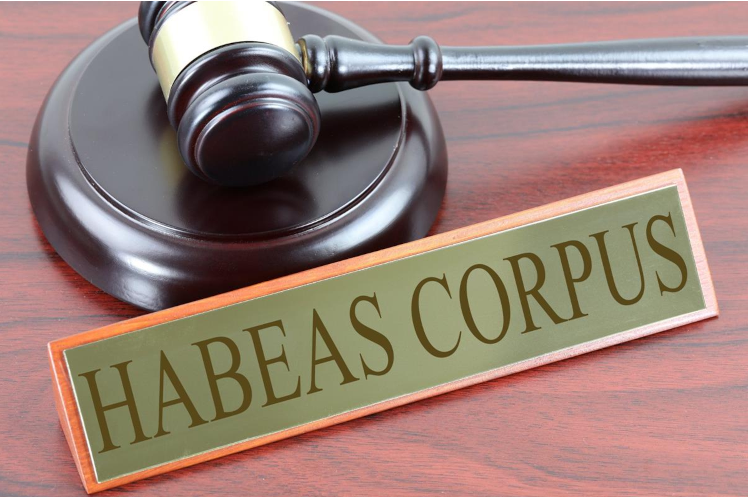Habeas corpus is a Latin phrase which literally translates to “you should have the body.” The principle of habeas corpus requires the government to bring a detained person to court to allow that person to argue against their continued detention. Habeas corpus has been a cornerstone of democratic law since the Magna Carta was signed in 1215[i] and is present in the legal system of all modern democracies. It is a key tenet of our Constitutional right to due process which requires that people’s legal rights be respected regardless of the circumstances. It is a right extended to everyone (citizen or not) who is physically present in the United States; the conservative Supreme Court Justice Antonin Scalia said as much on more than one occasion [ii], [iii].
Deporting anyone from the United States without due process, including habeas corpus,
is a violation of the Constitution.
The only exceptions allowed to habeas corpus are in the cases of invasion and rebellion[iv] and it is generally accepted that the right to suspend habeas corpus is granted to Congress, not the President[v]. When habeas corpus is suspended, the courts may, on a case by case basis, reject the person’s petition to present their arguments[vi]. Habeas corpus has only been suspended a few times in our history, and never on a nationwide basis:
- During the Civil War[vii] in parts of Maryland
- In parts of South Carolina in the 1870s in response to the violence of the Ku Klux Klan[viii]
- In Hawaii after the bombing of Pearl Harbor
Currently, thousands of people are being detained or deported by the Trump administration under the ruse of an “invasion” by a Central American criminal enterprise[ix] without any legal process whatsoever. This is a direct violation of habeas corpus and due process.
We are at a crossroads for all Americans. Do we allow the current administration to suspend the rule of law under the guise of a so-called invasion? Will those who attend protests be considered members of a rebellion? Who among us, in our suburban tract houses surrounded by green lawns, will be next?
[i] https://www.britannica.com/topic/Magna-Carta
[ii] https://youtu.be/z0utJAu_iG4?t=3680
[iii] In the 1993 Reno v. Flores case, Scalia wrote in the opinion for the majority that “It is well established that the Fifth Amendment entitles aliens to due process of law in deportation proceedings.” See: https://supreme.justia.com/cases/federal/us/507/292/
[iv] US Constitution: Article I, Section 9, Clause 2: The Privilege of the Writ of Habeas Corpus shall not be suspended, unless when in Cases of Rebellion or Invasion the public Safety may require it.
[v] https://constitution.congress.gov/browse/essay/artI-S9-C2-1/ALDE_00001087/
[vi] http://cdn.loc.gov/service/ll/usrep/usrep071/usrep071002/usrep071002.pdf. See paragraph 3 for here for a summary: https://constitution.congress.gov/browse/essay/artI-S9-C2-1/ALDE_00001087/
[vii] https://study.com/academy/lesson/writ-of-habeas-corpus-in-the-civil-war-definition-suspension-quiz.html
[viii] https://emergingcivilwar.com/2022/10/28/echoes-of-reconstruction-grants-suspension-of-habeas-corpus-in-parts-of-south-carolina-to-fight-klan-in-1871/
[ix] https://apnews.com/article/trump-alien-enemies-act-venezuela-tren-de-aragua-103919f71db9a9e7a9a3de1028585483



